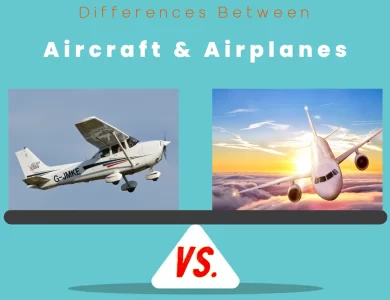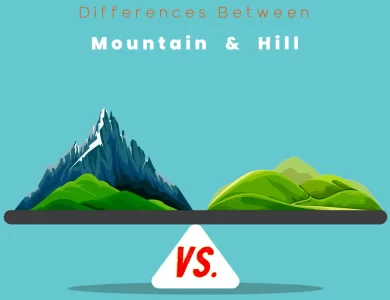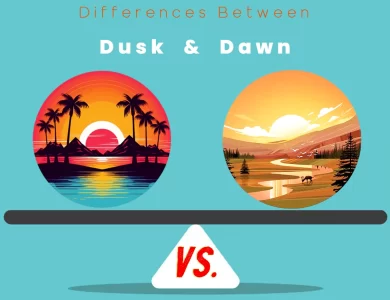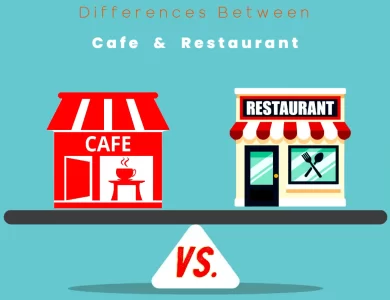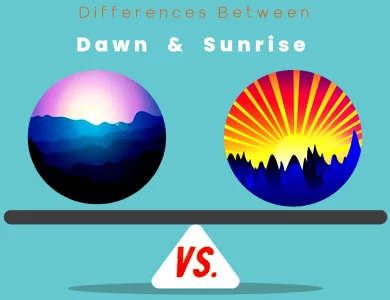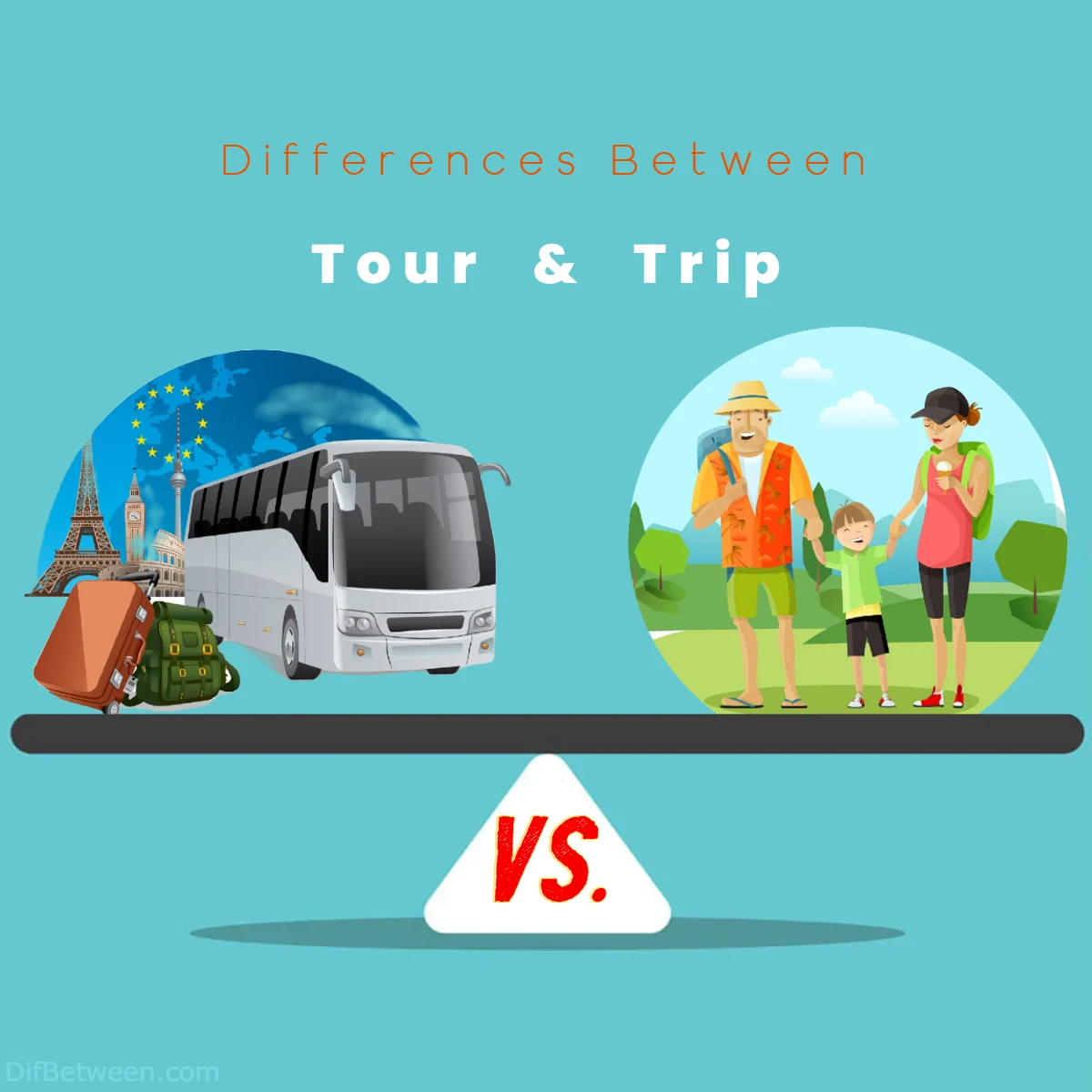
| Aspect | Tour | Trip |
|---|---|---|
| Itinerary Planning | Well-defined, detailed itinerary | Flexible, self-designed plan |
| Accommodation Options | Pre-arranged by the tour operator | Chosen by the traveler |
| Accommodation Types | Hotels, shared lodging with the group | Hotels, hostels, vacation rentals, camping, etc. |
| Transportation Included | Yes, typically included in the package | Selected and arranged by the traveler |
| Transportation Modes | Bus, train, chartered flights, etc. | Public transportation, rental cars, walking, etc. |
| Upfront Payment | Yes, all-inclusive package pricing | Pay-as-you-go approach, expenses vary |
| Cost Predictability | Fixed costs, known before the trip | Variable costs, daily budgeting required |
| Group Discounts | May be available for group bookings | Individual expenses, no group discounts |
| Cultural Insights | Guided by tour guide or experts | Self-learned and discovered |
| Local Interactions | Organized interactions with locals | Personal connections and spontaneous encounters |
| Cultural Activities | Included in the tour itinerary | Customized based on personal interests |
| Language Assistance | Help with language barriers | Personal language immersion |
| Scenic Highlights | Inclusive, iconic viewpoints on the itinerary | Serendipitous discoveries |
| Guided Photography | Photography tips and guidance available | Personal exploration and creativity |
| Time for Contemplation | Limited time at each scenic spot | Extended moments of reflection |
| Diverse Activities | Organized adventure options | Personalized choice of activities |
| Safety Measures | Priority on safety for provided activities | Individual responsibility for safety |
| Group Excitement | Shared adventure experiences with the group | Personal or selective companions for adventures |
| Fixed Duration | Predetermined start and end dates | Flexible, self-determined duration |
| Pace of Travel | Structured pace to cover planned activities | Personalized pace and itinerary |
| Efficient Use of Time | Ideal for travelers with limited time | Ideal for travelers seeking a relaxed approach |
| Local Knowledge | Provided by tour guides | Self-learned and discovered |
| Cultural Experiences | Included in the tour itinerary | Customized based on personal interests |
The world of travel offers a diverse array of experiences, each brimming with its unique flavor. Whether you’re an intrepid traveler in search of uncharted territories or a wanderluster seeking the comfort of well-planned escapades, the choice between a tour and a trip can shape your journey in distinctive ways.
Differences Between Tour and Trip
The main differences between a tour and a trip lie in their levels of structure and independence. A tour typically offers a meticulously planned itinerary with guided experiences led by experts, while a trip allows for greater flexibility, enabling travelers to craft their own adventure, choose accommodations and activities, and set their pace. Tours are ideal for those seeking a more organized, hassle-free experience, often inclusive of accommodation and transportation, while trips are favored by those desiring personalization and spontaneous exploration. The decision hinges on individual preferences for structured schedules, expert guidance, group dynamics, and cost predictability, or the desire for freedom, cultural immersion, and serendipitous discoveries.
Definitions
Before delving into the nuances, let’s start with clear definitions of both terms:
Tour
A tour is a structured and organized travel experience typically led by a professional guide. It involves a planned itinerary with predetermined destinations, activities, and often a group of participants. Tours are designed to provide a comprehensive and curated exploration of a specific region, city, or theme. Travelers usually pay a fee for the tour package, which covers accommodation, transportation, meals, and guided activities.
Trip
On the other hand, a trip refers to a more flexible and independent travel experience. It can range from a simple weekend getaway to an extended adventure to various destinations. A trip allows you to personalize your itinerary, make spontaneous decisions, and travel at your own pace. While you have more freedom in planning a trip, you’re also responsible for organizing accommodations, transportation, and activities.
Now that we have a clear understanding of these terms, let’s dive deeper into the key differences between a tour and a trip.
Planning and Itinerary
Tours: Structured Exploration
When you opt for a tour, you’re signing up for a well-structured journey. Tour operators meticulously plan every aspect of your travel, from the moment you arrive at your destination until the day you depart. This meticulous planning can be a significant advantage, especially if you want a hassle-free experience.
Benefits of a Tour
- Efficiency: Tours are known for their efficiency. You won’t need to spend time researching and planning your daily activities or worrying about transportation and accommodation arrangements. The itinerary is handed to you, and all you have to do is follow it.
- Expert Guidance: Tour guides are experts in the destinations they lead you through. They provide valuable insights, historical context, and local knowledge, enriching your travel experience.
- Group Dynamics: Traveling with a group of like-minded individuals can enhance your experience. You’ll have the opportunity to make new friends and share the journey with fellow travelers.
- Safety and Support: Tours often come with a safety net. If you encounter unexpected issues or emergencies, the tour operator and guide are there to assist you.
Here’s a comparison table to summarize the planning and itinerary aspect:
| Aspect | Tours | Trips |
|---|---|---|
| Structured Itinerary | Well-defined, detailed itinerary | Flexible, self-designed plan |
| Planning Responsibility | Tour operator takes care of planning | Traveler is responsible for planning |
| Expert Guidance | Professional tour guide provided | Self-guided or occasional local guides |
| Group Dynamics | Travel with a group of participants | Typically solo or with chosen companions |
| Safety and Support | Tour operator provides assistance | Self-reliance required in case of issues |
Trips: Personalized Adventures
If you’re someone who relishes the idea of crafting your own adventure, a trip might be the right choice for you. The essence of a trip is personalization. You have the freedom to decide where you want to go, how long you want to stay there, and what you want to do.
Benefits of a Trip
- Freedom: The most significant advantage of a trip is the freedom to create your unique experience. You can explore off-the-beaten-path locations, change your plans on the fly, and take as much time as you like at a particular destination.
- Cost Flexibility: Planning your trip allows you to control your expenses. You can choose budget-friendly accommodations and dining options or splurge on luxury experiences as you see fit.
- Cultural Immersion: Trips often lead to deeper cultural immersion. You can interact with locals, try regional dishes, and explore places that might not be included in standard tours.
- Spontaneity: Traveling without a strict itinerary allows room for serendipitous moments and spontaneous decisions. You can follow your instincts and explore unexpected gems.
| Aspect | Tours | Trips |
|---|---|---|
| Structured Itinerary | Well-defined, detailed itinerary | Flexible, self-designed plan |
| Planning Responsibility | Tour operator takes care of planning | Traveler is responsible for planning |
| Expert Guidance | Professional tour guide provided | Self-guided or occasional local guides |
| Group Dynamics | Travel with a group of participants | Typically solo or with chosen companions |
| Safety and Support | Tour operator provides assistance | Self-reliance required in case of issues |
Accommodation and Transportation
Tours: Packaged Convenience
Accommodation and transportation are integral components of any travel experience. When you choose a tour, these aspects are typically bundled into a package, providing convenience and peace of mind.
Accommodation
- Pre-arranged: Tours include pre-arranged accommodations. You’ll stay in hotels or other lodging options selected by the tour operator. This eliminates the need for you to search for and book accommodations.
- Group Stays: You often share accommodations with other members of the tour group, which can lead to social interactions and camaraderie.
- Variety: Tours offer a variety of lodging options, from budget to luxury, depending on the tour package you select.
Transportation
- Included: Tours generally include transportation between destinations. This may involve traveling by bus, train, or even a chartered flight, depending on the tour’s design.
- Comfort: Transportation is typically comfortable and well-organized, ensuring a smooth transition from one place to another.
- Logistics: The tour operator takes care of all transportation logistics, so you don’t have to worry about schedules or routes.
Trips: Personal Choices
When planning a trip, you have the flexibility to choose your own accommodation and transportation options. This level of control allows you to tailor these elements to your preferences and budget.
Accommodation
- Flexibility: You have the freedom to select accommodations that suit your budget and preferences. This might include hotels, hostels, vacation rentals, or even camping.
- Booking Responsibility: Booking accommodations is your responsibility. It’s essential to research and make reservations in advance, especially during peak travel seasons.
- Privacy: If privacy is a priority, you can book private accommodations for yourself and your companions.
Transportation
- Independence: With a trip, you can choose how you want to move from one place to another. Options include public transportation, rental cars, or even walking and cycling.
- Budget Control: You have control over transportation expenses. Opt for cost-effective options or indulge in luxury travel, depending on your preferences.
- Local Experience: Using local transportation methods can provide a more immersive cultural experience, as you’ll interact with locals during your journey.
| Aspect | Tours | Trips |
|---|---|---|
| Accommodation Options | Pre-arranged by the tour operator | Chosen by the traveler |
| Accommodation Types | Hotels, shared lodging with the group | Hotels, hostels, vacation rentals, camping, etc. |
| Transportation Included | Yes, typically included in the package | Selected and arranged by the traveler |
| Transportation Modes | Bus, train, chartered flights, etc. | Public transportation, rental cars, walking, etc. |
Costs and Budget
Tours: Upfront Payment
Understanding the financial aspect of your travel is crucial when deciding between a tour and a trip. Tours are known for their upfront costs, making it easier to budget for your entire journey.
Upfront Payment
- All-Inclusive Pricing: Tour packages usually come with an all-inclusive price. You pay for the entire experience upfront, covering accommodations, meals, transportation, and activities.
- Few Surprises: With tours, you’re less likely to encounter unexpected expenses during your journey. Once you’ve paid for the tour, most of your expenses are covered.
- Group Discounts: Tour operators may offer discounts for group bookings, making it a cost-effective option for families or small groups of friends traveling together.
Cost Predictability
- Fixed Costs: You’ll know the exact cost of your trip before you leave. This can help you budget and plan your expenses more effectively.
Trips: Pay As You Go
Trips are often associated with a pay-as-you-go approach. While this provides more financial flexibility, it also requires vigilant budgeting to avoid overspending.
Pay As You Go
- Variable Expenses: With a trip, your expenses can vary greatly from one day to the next. You’ll need to manage your budget as you go, accounting for accommodation, dining, and activities.
- Room for Savings: On a trip, you have the opportunity to cut costs where you see fit. This may mean choosing budget accommodations or dining at local eateries to save money.
- Spending Flexibility: You can adapt your spending based on your preferences and available funds. This flexibility can be a double-edged sword, depending on your financial discipline.
Budget Management
- Daily Expenses: On a trip, it’s essential to set a daily budget and track your spending. Apps and spreadsheets can be helpful tools for managing your finances.
| Aspect | Tours | Trips |
|---|---|---|
| Upfront Payment | Yes, all-inclusive package pricing | Pay-as-you-go approach, expenses vary |
| Cost Predictability | Fixed costs, known before the trip | Variable costs, daily budgeting required |
| Group Discounts | May be available for group bookings | Individual expenses, no group discounts |
Cultural Immersion
Tours: Guided Learning
Cultural immersion is an essential aspect of travel, offering the opportunity to learn about and experience the customs, traditions, and way of life of a particular region. Tours provide a structured platform for cultural immersion.
Guided Experiences
- Cultural Insights: Tour guides are often well-versed in the culture of the destination. They provide insights into local customs, history, and traditions, enhancing your understanding of the place you’re visiting.
- Local Interactions: Tours may include interactions with local residents, artisans, or experts who share their knowledge and skills with the group.
- Cultural Activities: Many tours incorporate cultural activities such as cooking classes, traditional dance performances, and craft workshops.
Trips: Immersion Through Independence
While tours offer guided cultural experiences, trips provide a different kind of cultural immersion based on your independence and interactions with locals.
Self-Guided Exploration
- Personal Connections: Traveling independently allows you to forge personal connections with locals. You can interact with people from diverse backgrounds and gain authentic insights into their way of life.
- Local Exploration: You have the freedom to explore local markets, dine at neighborhood eateries, and attend events or festivals on your own schedule.
- Language Learning: Engaging with locals in their language can be a significant part of cultural immersion, and trips provide ample opportunities for language practice.
| Aspect | Tours | Trips |
|---|---|---|
| Cultural Insights | Guided by tour guide or experts | Self-discovered through interactions |
| Local Interactions | Organized interactions with locals | Personal connections and spontaneous encounters |
| Cultural Activities | Included in the tour itinerary | Self-planned or found on the go |
| Language Learning | Limited opportunities for immersion | Greater potential for language practice |
Flexibility and Spontaneity
Tours: Structured Schedule
The structured nature of tours can limit flexibility and spontaneity. While this can be a positive for those who prefer a well-organized experience, it may not suit those who thrive on spontaneity.
Planned Itinerary
- Fixed Schedule: Tours follow a predetermined schedule, leaving limited room for spontaneous activities or last-minute changes.
- Group Consensus: Decisions about the itinerary and activities are often made collectively, considering the group’s preferences.
- Limited Free Time: Tours may have a tightly packed itinerary, with limited free time for personal exploration or relaxation.
Trips: Embracing the Unexpected
If you value the ability to go where the wind takes you and explore without constraints, a trip offers the perfect canvas for spontaneity.
Unplanned Adventures
- Adaptable Schedule: Trips allow you to adapt your schedule on the fly. If you discover a hidden gem or want to spend more time in a particular place, you can do so.
- Personal Choices: You make decisions independently, giving you the freedom to explore off-the-beaten-path locations or change your plans based on your mood.
- Abundant Free Time: Trips typically offer more free time, allowing you to engage in unplanned adventures or simply relax.
| Aspect | Tours | Trips |
|---|---|---|
| Planned Itinerary | Predetermined schedule | Adaptable schedule, changes on the fly |
| Group Consensus | Collective decisions on activities | Independent decision-making |
| Free Time | Limited free time for personal exploration | More abundant free time |
Social Experience
Tours: Group Dynamics
One of the most significant social aspects of a tour is the group dynamic. You’ll share your travel experience with fellow participants, which can lead to meaningful connections and shared memories.
Shared Experiences
- Travel Companions: Tours provide an opportunity to meet and bond with other travelers who share similar interests.
- Group Activities: Many activities on a tour are designed to be enjoyed as a group, fostering a sense of camaraderie.
- Built-in Social Network: You’ll have a ready-made social network throughout your journey.
Trips: Personal or Select Companions
Trips offer more control over your social experience. You can choose to travel solo, with a partner, or in a small group of your choice.
Tailored Companionship
- Travel Options: You can travel alone, with a partner, or with friends and family of your choosing.
- Personalized Experience: Trips allow for more intimate and personal interactions with your travel companions.
- Privacy: If you value privacy and seclusion, you have the option to travel alone.
| Aspect | Tours | Trips |
|---|---|---|
| Travel Companions | Join a group of fellow travelers | Choose to travel alone or with selected companions |
| Group Activities | Participate in group activities | Personalized experiences and activities |
| Social Network | Built-in social network of fellow travelers | Smaller and more select social circles |
Scenic Exploration
Tours: Curated Views
When it comes to enjoying the scenic beauty of a destination, tours often provide carefully selected viewpoints and photo opportunities. They ensure that you don’t miss out on the most iconic and picturesque sights.
Scenic Highlights
- Photogenic Spots: Tour itineraries are designed to include popular and stunning scenic locations, ensuring you capture the most beautiful landscapes on camera.
- Inclusive Sightseeing: You won’t have to worry about missing out on the best viewpoints. Tours take you to the right places at the right times for breathtaking vistas.
- Guided Photography: Some tour guides offer photography tips and tricks, enhancing your ability to capture the perfect shot.
Trips: Serendipitous Beauty
On a trip, the beauty you encounter is often a result of spontaneous exploration. You have the freedom to stumble upon hidden gems and breathtaking landscapes by chance.
Unexpected Discoveries
- Off-the-Beaten-Path: While traveling independently, you may venture off the tourist trail and uncover hidden scenic treasures known only to locals.
- Time for Contemplation: Trips provide the freedom to savor the scenery at your own pace. You can linger at a serene spot without being rushed by a tour group.
- Personal Connection: The beauty you find during a trip is often a product of your personal connection to the environment. These moments can be deeply rewarding and memorable.
| Aspect | Tours | Trips |
|---|---|---|
| Scenic Highlights | Inclusive, iconic viewpoints on the itinerary | Serendipitous discoveries |
| Guided Photography | Photography tips and guidance available | Personal exploration and creativity |
| Time for Contemplation | Limited time at each scenic spot | Extended moments of reflection |
Adventure and Activities
Tours: Organized Adventures
If you’re seeking adventure and a variety of activities, tours provide a wide array of organized experiences to choose from. These may include hiking, water sports, wildlife safaris, and cultural performances.
Diverse Activities
- Adventure Menu: Tours often offer a menu of adventure activities, allowing you to select those that match your interests and comfort level.
- Safety Measures: Activity providers associated with tours prioritize safety, ensuring that you can enjoy your adventures with peace of mind.
- Group Excitement: Participating in adventurous activities with a group can enhance the experience through shared excitement and camaraderie.
Trips: Create Your Adventure
Trips put you in the driver’s seat when it comes to adventure. You have the flexibility to choose your activities and plan them according to your preferences.
Personalized Adventures
- Freedom to Choose: You decide which activities to pursue, giving you complete control over the types of adventures you want to experience.
- Spontaneity: If you come across a thrilling opportunity during your trip, you can seize the moment and participate without adhering to a pre-set schedule.
- Unique Path: Personalized adventures often lead to unique and unforgettable experiences that aren’t bound by the constraints of a tour.
| Aspect | Tours | Trips |
|---|---|---|
| Diverse Activities | Organized adventure options | Personalized choice of activities |
| Safety Measures | Priority on safety for provided activities | Individual responsibility for safety |
| Group Excitement | Shared adventure experiences with the group | Personal or selective companions for adventures |
Duration and Pace
Tours: Time-Managed Travel
Tours often come with a predetermined duration and a set pace. The itinerary is designed to cover a specific set of destinations within a defined timeframe.
Fixed Duration
- Set Itinerary: Tours have a fixed start and end date, which can be convenient for travelers with limited time.
- Pace of Travel: The pace of tours is usually structured to ensure that you cover all planned activities and destinations during the trip.
- Efficient Use of Time: For travelers seeking efficiency and the ability to see many places in a short time, tours can be a great choice.
Trips: Time as You Like
Trips offer the freedom to control the duration and pace of your journey. You can extend your stay in a particular location or take a leisurely approach to exploration.
Flexible Duration
- No Rush: Trips allow you to savor each destination at your own pace. If you fall in love with a place, you can extend your stay.
- Extended Exploration: You have the freedom to explore off-the-beaten-path locations or immerse yourself in local culture for a longer period.
- No Time Pressure: There’s no need to stick to a predefined schedule, which reduces the stress associated with tight deadlines.
| Aspect | Tours | Trips |
|---|---|---|
| Fixed Duration | Predetermined start and end dates | Flexible, self-determined duration |
| Pace of Travel | Structured pace to cover planned activities | Personalized pace and itinerary |
| Efficient Use of Time | Ideal for travelers with limited time | Ideal for travelers seeking a relaxed approach |
Language and Cultural Understanding
Tours: Guided Insights
When it comes to understanding the local culture and language, tours often provide valuable guidance and interpretation.
Cultural Insights
- Local Knowledge: Tour guides are well-versed in the culture and history of the region, providing insights and context to enhance your understanding.
- Language Assistance: Guides often assist with language barriers, helping you communicate and interact with locals more effectively.
- Cultural Experiences: Tours may include hands-on cultural activities, allowing you to immerse yourself in local traditions.
Trips: Self-Guided Learning
Trips offer opportunities for self-guided cultural exploration, encouraging you to learn about the culture and language on your own terms.
Personal Exploration
- Independent Learning: You have the freedom to explore and interact with locals independently, which can lead to deeper cultural understanding.
- Language Immersion: Traveling on your own allows you to practice the local language and develop your communication skills.
- Customized Cultural Experiences: Trips enable you to seek out specific cultural experiences that align with your interests.
| Aspect | Tours | Trips |
|---|---|---|
| Local Knowledge | Provided by tour guides | Self-learned and discovered |
| Language Assistance | Help with language barriers | Personal language immersion |
| Cultural Experiences | Included in the tour itinerary | Customized based on personal interests |
Tour or Trip: Which One is Right Choose for You?
Deciding between a tour and a trip is a critical choice when planning your next adventure. Both options offer unique experiences and cater to different travel preferences. To help you make the right decision, we’ll explore the key differences between a tour and a trip, so you can align your choice with your travel style, budget, and expectations.
Tour: A Guided Journey
A tour is a structured and organized travel experience led by a professional guide. It comes with a well-defined itinerary, predetermined destinations, and often a group of fellow travelers. If you opt for a tour, you’ll pay a fee for a comprehensive package that includes accommodation, transportation, meals, and guided activities. Here are the key aspects of a tour:
Structured Itinerary
Tours provide a meticulously planned itinerary, leaving no room for guesswork. Your days are carefully scheduled, and all you need to do is follow the plan. This level of structure can be a significant advantage if you prefer a hassle-free travel experience.
Expert Guidance
Tour guides are experts in the destinations they lead you through. They offer valuable insights, historical context, and local knowledge, enriching your travel experience.
Group Dynamics
Traveling with a group of like-minded individuals can enhance your experience. You’ll have the opportunity to make new friends and share the journey with fellow travelers.
Safety and Support
Tours often come with a safety net. If you encounter unexpected issues or emergencies, the tour operator and guide are there to assist you.
Trip: Personalized Adventure
A trip, on the other hand, is a more flexible and independent travel experience. It allows you to plan your own itinerary, make spontaneous decisions, and travel at your own pace. While you have more freedom in planning a trip, you’re also responsible for organizing accommodations, transportation, and activities. Here’s what you can expect on a trip:
Freedom and Flexibility
The most significant advantage of a trip is the freedom to create your unique experience. You can explore off-the-beaten-path locations, change your plans on the fly, and take as much time as you like at a particular destination.
Cost Flexibility
Planning your trip allows you to control your expenses. You can choose budget-friendly accommodations and dining options or splurge on luxury experiences as you see fit.
Cultural Immersion
Trips often lead to deeper cultural immersion. You can interact with locals, try regional dishes, and explore places that might not be included in standard tours.
Spontaneity
Traveling without a strict itinerary allows room for serendipitous moments and spontaneous decisions. You can follow your instincts and explore unexpected gems.
Now, let’s compare the key aspects of tours and trips in the following table to help you decide which option is right for you:
| Aspect | Tour | Trip |
|---|---|---|
| Structured Itinerary | Well-defined, detailed itinerary | Flexible, self-designed plan |
| Planning Responsibility | Tour operator takes care of planning | Traveler is responsible for planning |
| Expert Guidance | Professional tour guide provided | Self-guided or occasional local guides |
| Group Dynamics | Travel with a group of participants | Typically solo or with chosen companions |
| Safety and Support | Tour operator provides assistance | Self-reliance required in case of issues |
The choice between a tour and a trip ultimately depends on your travel goals and what kind of experience you seek. Consider your preferences for structure, independence, and social interaction as you make your decision. Whether you choose a well-organized tour or prefer the open road of a trip, the world is yours to explore.
FAQs
A tour is a structured and organized travel experience with a predetermined itinerary and guided activities, while a trip offers greater flexibility and independence, allowing travelers to plan their own itinerary and make spontaneous decisions.
Tours often have upfront costs that cover accommodations, meals, and activities. Trips offer more budget flexibility since travelers can choose their own accommodations and dining options.
Tours offer guided insights into the local culture and history through expert guides. Trips provide opportunities for self-guided cultural immersion and personal interactions with locals.
Tours often come with safety measures and support from the tour operator and guide. In contrast, safety during a trip relies more on the traveler’s self-reliance and preparedness.
Tours have a pre-planned itinerary, but some may offer optional activities. On a trip, you have full control over planning and choosing your own activities.
Tours often include carefully selected scenic viewpoints and iconic sights on their itinerary. On a trip, travelers can stumble upon breathtaking landscapes by chance.
Tour guides often provide language assistance, helping travelers communicate with locals. On a trip, language immersion and communication are more self-guided.
Trips are well-suited for solo travelers as they provide more freedom and flexibility to explore at your own pace and customize your experience.
Changing plans during a tour can be limited due to the structured itinerary. On a trip, you have the flexibility to adapt your schedule and make spontaneous decisions.
Tours provide organized adventure activities, while trips allow travelers to create their own adventure and choose activities based on their interests.
Read More:
